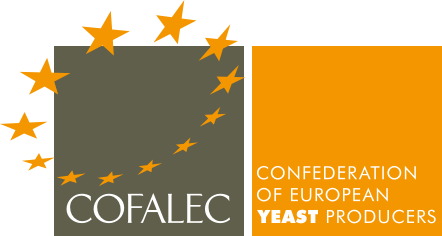The Bread EU initiative brings together 5 professional federations involved in the production chain of bakery products: AIBI (International Association of Industrial Bakeries), the craft association CEBP (European Confederation of national Bakery and Confectionery Organisations), EFM (European Flour Millers), COFALEC (Confederation of European yeast Producers) and FEDIMA (Federation of European Manufacturers and Suppliers of Ingredients to the Bakery, Confectionery and Patisseries Industries)
For more information on the Bread EU Initiative, click here
The aim of this informal alliance is to improve bread’s image within the European Union and to emphasize its health value. Bread contributes indeed to a healthy and balanced diet, the foundation of a good health.
The objective is also to demonstrate to European consumers the economic importance of the industrial sectors linked to bread, the European bakery sector being composed of more than 190,000 SMEs and 2,200 large companies employing more than 2 million people in the EU. In this context, the objective is to foster the involvement of as many European federations as possible in national or multi-country bread promotion programs co-financed by the European Union in the framework of its annual agri food promotion programs.
This alliance brings together European associations representing industries using molasses to produce food and feed.
For more information on the “Molasses for food & feed” alliance, click here
It includes COFALEC (Confederation of European Yeast Producers), EFG (CEFIC’s fermentation division), EURASYP (European Yeast Extract Producers), FEFAC (European Feed Industry), FEDIAF (European Pet Food Association) as well as federations representing the main end-users of these products: Brewers of Europe, AIBI (International Association of Plant Bakers), EFFPA (European Former Foodstuff Processors Association), CAOBISCO (European Chocolate, Biscuit and Confectionery Manufacturers), CEBP (European Confederation of National Bakery and Confectionery Organizations), and FEDIMA (European Bakery, Confectionery and Pastry Ingredient Manufacturers).
The European Commission is currently reviewing Annex IX of the Renewable Energy Directive RED II. Annex IX details waste and residue feedstocks that can be used to produce advanced biofuels and can benefit from public fiscal incentive for such incorporation. The European Union is indeed encouraging Member States to provide tax incentives to enable the incorporation of renewable energy in transport, and in particular through the deployment of advanced biofuels.
However, molasses is a highly valued co-product from the sugar processing industry, used in food and feed, and not a residue. hence, partners from this Alliance believe that this co-product should be prioritized for its food & feed use and should never be added to this Annex IX. In addition, they believe that these highly valuable coproducts should be protected like food & feed crop material from overuse for bioethanol production in the same way as feedstocks from the “food & feed crop” category i.e., with a cap on their incorporation. They should definitely be considered as feedstocks for 1st generation biofuel.
Molasses is indeed a very scarce material with low supply in the European Union. The EU already imports more than 1.2 million tons each year, which represents more than 30% of its needs. If molasses use is further incentivized for biofuel production, there will be no molasses available for its food and feed use. This is why, the Molasse for food & feed alliance oppose any further incentive to molasse based biofuel production.
InnovProtein EU is a group of three associations, IPIFF (International Platform of Insects for Food and Feed), EABA (European Algae Biomass Association) and COFALEC, promoting alternative sources of non-meat protein, such as insects, algae and yeast.
Following the IPIFF Annual Conference on December 1st 2021, IPIFF, EABA and COFALEC have decided to delineate a joint roadmap on common interests and objectives.
InnovProtein EU shares the ‘common aim’ of supporting the overall objectives of ‘EU Farm to Fork Strategy’ and the transition towards more sustainable EU food supply chains.
For more information on the InnovProtein EU joint coalition, click here

